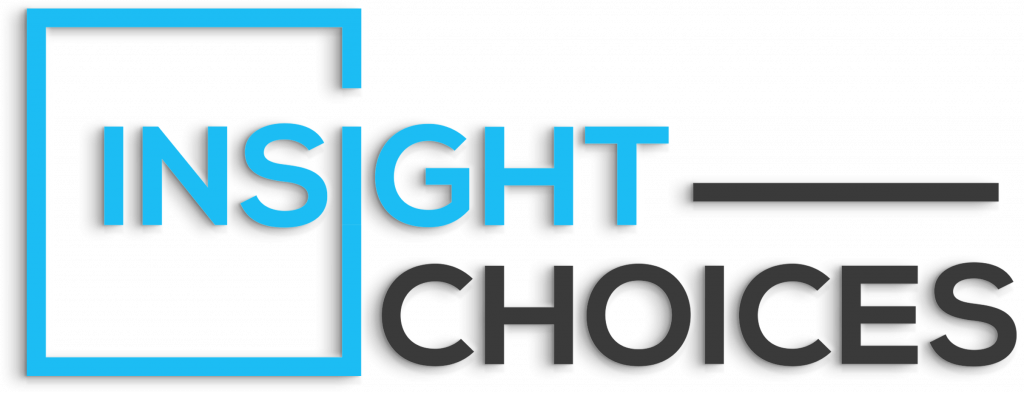Introduction: Standing Together for Mental Wellness
Living with anxiety or depression is hard. Living with it quietly is often even harder.
National Anxiety and Depression Awareness Week (May 12–18) is more than just a date on the calendar. It’s the time to take a breath, speak up, and remind people that they’re not alone. It’s an opportunity to acknowledge raising awareness for mental health challenges with kindness rather than stigma and to create community through open discussion.
The reality? These illnesses are much more prevalent than we discuss. Over a million adults in the U.S. are affected by anxiety every year. 1 in 6 people have their lives touched by depression at some point. But still, stigma makes individuals feel that they’re broken for suffering from it. Or worse, weak for seeking help.
But here is the thing. You’re not weak, and you’re not broken. Asking for help is an act of courage. And each time we stand up, we erode the silence that keeps so many held back.
Insight Choices is not just here for crises. We’re here for the quiet in-betweens, the hidden battles, and the brave steps forward. Our mission is to make mental health support feel human, hopeful, and, above all, safe.
This week, we stand united. And we speak out. For ourselves, for one another, for a future in which nobody needs to pretend they’re all right when they’re not.
The Importance of Awareness: Redefining Strength in Mental Health
Let’s reimagine what strength is.
Strength isn’t silence. It isn’t pretending you’re okay. True strength is showing up even when you are struggling, reaching out when you’re overwhelmed, and learning to care for your mental health with the same urgency we give physical health
Far too many people equate anxiety and depression with weakness or instability. The reality is that it takes an enormous amount of strength to live with these things. What strength does it require to leave your bed when you feel it weighs a million pounds? That’s a strength. What is the exposure involved in saying you’re not alright? Strength. The act of attending therapy despite your fear of it? That’s the actual strength.
Anxiety awareness week is essential because it replaces fear with knowledge. It provides individuals with language for what they’re experiencing. It informs them they’re not “overreacting” or “too sensitive.” They’re having very real, very legitimate problems.
And above all, Mental Health Awareness Week establishes support systems.
When more of us know what anxiety and depression look like — and don’t look like – we are better equipped to support ourselves and each other. Awareness helps build environments where it’s safe to say, “I’m struggling.” And in those environments, healing is possible.
Coping Mechanisms and Resources for Mental Wellness
So what helps when the fog of depression or the weight of anxiety takes over?
First, let’s say this: There’s no “one” solution. Everyone’s journey looks different. But there are tools—tools that can soften the edges, build resilience, and offer moments of calm within the chaos.
Here are a few that work:
- Mindfulness and Grounding Techniques: Deep breathing. Name five things you can see. Pressing your feet firmly into the ground. These may sound simple, but they reconnect you with the present moment. The only place anxiety can’t fully control.
- Movement: You don’t need to run a marathon. Walk around the block, stretch in the morning, or dance to your favorite song. Movement releases endorphins, regulates stress, and reminds your body that it’s capable.
- Creative Expression: Words can be hard, so sometimes it’s music, color, or rhythm. Journaling, painting, and playing guitar are more than hobbies. They’re ways of processing emotion when language fails.
- Connection: Isolation feeds anxiety and depression. Connection starves them. Whether it’s a therapist, a support group, or a trusted friend, talking helps. Even being in the same room with someone who “gets it” can feel like a lifeline.
Insight Choices offers more than talk therapy. We provide accessible support wherever you are in your journey:
- Individual therapy for anxiety, depression, and trauma
- Mindfulness training and emotional regulation workshops
- Online platforms for those who prefer support from home
- Culturally informed care that respects every story and background
Because the right resources don’t just help you cope. They allow you to reclaim your life.
Creating Safe Spaces: How to Support Others
You don’t have to be a therapist to assist someone in working through anxiety or depression. Sometimes, the most powerful thing you can tell someone is:
“I’m here.”
Support isn’t always a solution. Sometimes, it means sitting in silence with someone when they have no words. Sometimes, it means hearing, “Do you want to talk, or do you just need me to be here with you right now?”
Here are a few ways to create spaces that are safer and more easygoing:
- Listen without trying to fix. People are not usually looking for solutions. They’re looking to be understood.
- Don’t minimize. While telling someone to “just be positive” or “it’s not that bad” may be done with good intentions, it is a shutting-off response.
- Offer gentle check-ins. An instant “Thinking of you today” text can make one feel remembered at rock bottom.
- Normalize professional help. Offer it to Google. Talk about your encounters with counseling, if any. Walk beside them. Don’t push from behind.
Want to take it a step further?
Invite your workplace or school to recognize National Anxiety and Depression Awareness Week. Host a lunch-and-learn, create a mental health resource wall, or bring in a speaker. These events build community and reduce stigma, conversation by conversation.
The Role of Insight Choices: Empowering Individuals to Seek Help
When you step into Insight Choices, in person or online, our initial message is straightforward: You belong here.
We recognize that seeking assistance isn’t straightforward. That’s why we construct our services with empathy, adaptability, and your humanity at the forefront.
Our services include:
- Anxiety, depression, and related issues: counseling and therapy
- Panic attack, chronic stress, or low mood-specific workshops
- Mindfulness and self-compassion instruction
- Safe and inclusive environments for one-on-one and group assistance
But aside from the services, what we provide is trust. The trust that you will be heard without being judged. That your experience will be honored. That your healing will not be hurried.
No two paths are alike, and we respect that.
Insight Choices isn’t a business transaction. It’s a connection. And we’re with you, step for step.
Spreading Awareness and Showing Support
Depression awareness week is all about taking action as a group. It doesn’t need to be big to count.
Here are ways you can show up:
- Post about it: Share an anxiety or depression resource, share your story, or send someone encouragement on social media using #AnxietyAndDepressionAwarenessWeek or #YouAreNotAlone.
- Host or attend an event: Host a mental wellness webinar, community event, or support group. Your presence matters.
- Share resources: Drop a brochure at a coffee shop, pass on an article about mental health, or invite someone to Insight Choices. Each tiny ripple has an impact.
- Reach out: Text a person who has been on your mind. Leave a care package. Say, “How are you?”
And if you’ve never had anxiety or depression, be an ally. Listen. Learn. Speak up when you hear stigma. Awareness starts with empathy.
Why Awareness Is Just the First Step
This week is essential. But it’s just the beginning.
Real change happens when the conversation doesn’t end after seven days, when we normalize mental health check-ins like physical ones, prioritize rest, connection, and community care, and replace shame with curiosity and judgment with grace.
Stigma still lingers. It whispers, “Don’t say anything. Don’t be a burden.”
But awareness shouts back, “You deserve to be seen. You deserve to be supported.”
Let this week be a trigger, not a conclusion.
Conclusion: Moving Forward with Hope and Compassion
If you take nothing else from this week. Take this:
You’re not alone.
Your feelings are valid, your story matters, and healing is possible even when it doesn’t feel like it.
Insight Choices are here to walk beside you. Whether you’re taking your first step toward help or your hundredth. There’s no wrong time to reach out. No “right way” to struggle.
Just a shared human experience, and a community ready to hold space for it.
So talk about it, show up, check in, share the resources, and tell someone they matter.
Because they do, and so do you.
FAQ
- What is National Anxiety and Depression Awareness Week?
It’s a dedicated week (May 12–18) to raise awareness, reduce stigma, and encourage open conversations about mental health, mainly focusing on anxiety and depression.
- How can I support someone during this week?
Check in. Listen without judgment. Share mental health resources. Encourage professional help if needed — and remind them they’re not alone.
- What should I do if I or someone I know is struggling with anxiety or depression?
Start by contacting a therapist, a trusted friend, or a support line. If it’s urgent, contact a crisis service. Insight Choices also offers therapy and support tailored to these challenges.
- Are there any resources for managing anxiety and depression?
Yes! Tools like mindfulness apps, support groups, breathing techniques, and creative outlets can help. Insight Choices also provides therapy, workshops, and digital support platforms.
- How can I get involved during National Anxiety and Depression Awareness Week?
Share your story, join community events, and spread awareness on social media with hashtags like #YouAreNotAlone. Every voice counts, including yours.

Dr. Chang is a highly respected psychiatrist with extensive experience serving patients in the greater Los Angeles area. With a distinguished background in psychiatry, he has dedicated his career to advancing mental health care through both clinical practice and academic contributions.

